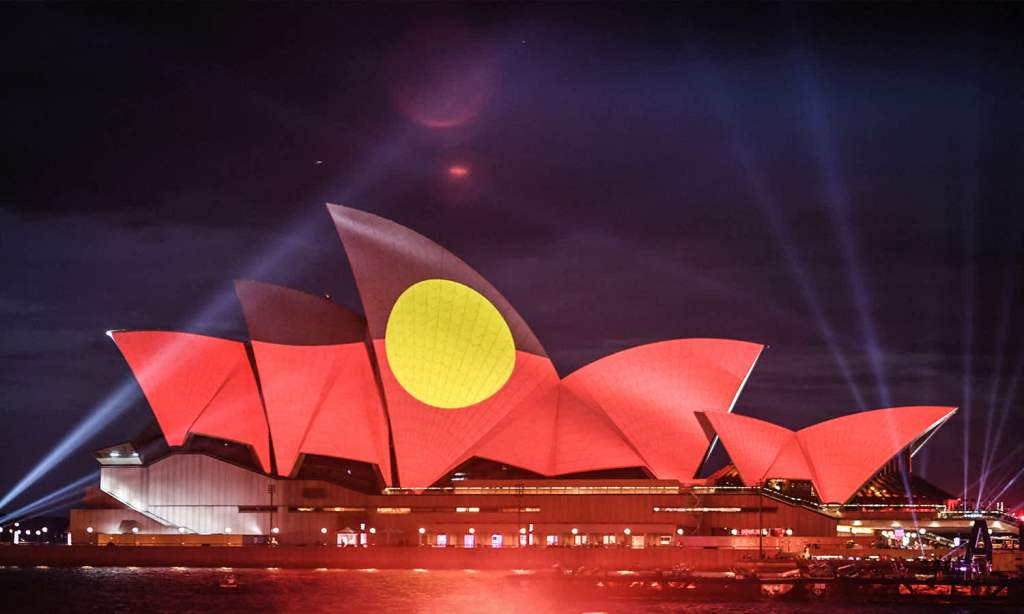The Prime Minister has finally given us the date we’ve all been waiting for. In Adelaide this morning, Anthony Albanese announced when the Indigenous Voice to Parliament referendum will be held.
“My fellow Australians, for many years, Aboriginal and Torres Strait Islander people have advocated for constitutional recognition through a voice,” Albanese said in front of a crowd in Adelaide.
“Our government, along with every single state and territory government has committed to it. Legal experts have endorsed it. People on all sides of the parliament have backed it. Faith groups and sporting codes and local councils and businesses and unions have embraced it. An army of volunteers from every part of this great nation are throwing all of their energy behind it
“Now my fellow Australians, you can vote for it,” Albanese continued.
The Yes campaign will need to win four of the six states in order for the referendum to pass, with South Australia being considered “critical” for its success. South Australia is also the only state or territory to have already created an Indigenous Voice to Parliament at a state level.
“The idea for a Voice came from the people and it will be decided by the people,” Albanese said.
With a little over six weeks to go, here’s everything you need to know about the upcoming Indigenous Voice to Parliament referendum.
What Is the Voice to Parliament?
The Indigenous Voice to Parliament is a proposed advisory body to the federal government. The Voice, as it’s known, will provide a direct line from Indigenous people in communities all across the country to Parliament House in Canberra.
The Voice, if passed, will be an elected body made up of 24 members that will advise the government on issues affecting Indigenous communities. These are expected to be things like Indigenous health, housing, education, and employment problems.
It’s purely an advisory body, meaning it has no power to pass laws. All it does is ensure that Indigenous voices are heard in Parliament in an effort to improve outcomes for Indigenous communities.
What is the Voice Referendum?
The Voice requires a change to the Australian constitution. In order to do so, Australia will have to vote in a referendum over whether or not we want to make this change.
The referendum will be a yes or no response to the question:
“A Proposed Law: to alter the Constitution to recognise the First Peoples of Australia by establishing an Aboriginal and Torres Strait Islander Voice.
“Do you approve this proposed alteration?”
The proposed alteration is the creation of the Aboriginal and Torres Strait Islander Voice “In recognition of Aboriginal and Torres Strait Islander peoples as the First Peoples of Australia.”
It also gives scope for The Voice, granting it the power to “make representations to the Parliament” and to the government of the day. Parliament and the government will retain lawmaking power.
When Is the Voice Referendum?
The date of The Voice referendum, as announced by the Prime Minister on Wednesday, will be Saturday, 14 October.
“On October 14, you are not being asked to vote for a political party, or for a person. You’re being asked to vote for an idea, to say yes to an idea whose time has come,” Albanese said in announcing The Voice.
Albanese has been putting off the announcement of the date of the referendum. Creating an Indigenous Voice to Parliament was an election promise last year and, in March of this year, Albanese confirmed the question and proposed alteration to the constitution. In June, legislation passed through Parliament allowing for a Voice referendum, stating it must be held in the following two to six months.
That left scope for The Voice referendum to be held any time between 16 August and 16 December.
Is It Compulsory to Vote in the Voice Referendum?
The Voice referendum is like any other national vote. It is compulsory to vote in it for those over the age of 18 and any who don’t vote risk being fined.
Just as in national votes, early voting centres will be open two weeks before polling day. We’ll keep you updated on when and where these will be when they are confirmed by the Australian Electoral Commission.
Related: Breaking Down the Official Yes and No Campaigns for the Voice to Parliament
Related: Ahead of the Curve: South Australia Enacts Its Own Indigenous Voice to Parliament
Read more stories from The Latch and subscribe to our email newsletter.







